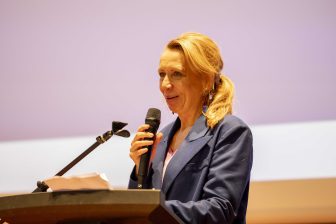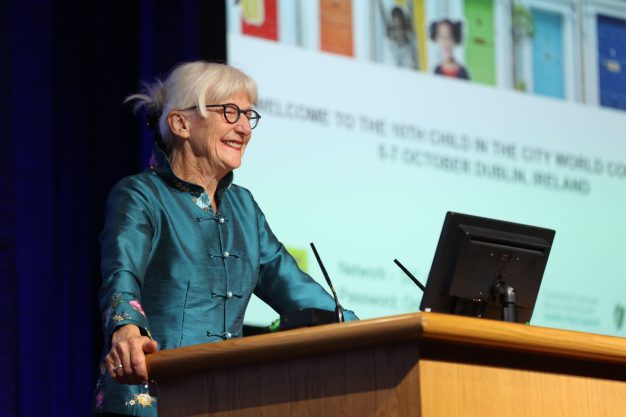
‘Inspired’ – what you said about Child in the City Dublin 2022
If Making Connections was indeed the theme and aim of our Child in the City World Conference, then Dublin delivered on every level possible.
From all corners of the globe, you came in huge numbers to share the work that you have been doing – and continue to do – to improve the lives of children everywhere.
Two years later than planned – for reasons we are all familiar with – Dublin 2022 was everything we all hoped it would be, giving a platform for best practice, with well over 100 speakers and experts giving some fascinating insights on their work.
“It was fantastic to be with everyone at #childinthecitydublin2022…we came to share lessons from our #StreetsforKids work, but left feeling so inspired by all the questions and ideas,” said the Global Designing Streets Initiative on Twitter.
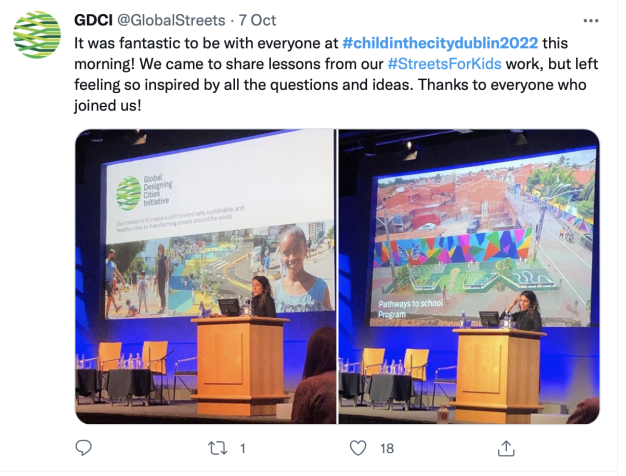
Our field visits also proved very popular, as one participant, Holly Weir @hollyjaneweir, wrote: “Been biking around Dublin today for #childinthecitydublin2022 – great to see interest in making the city more bike and child friendly, but still work to do!”
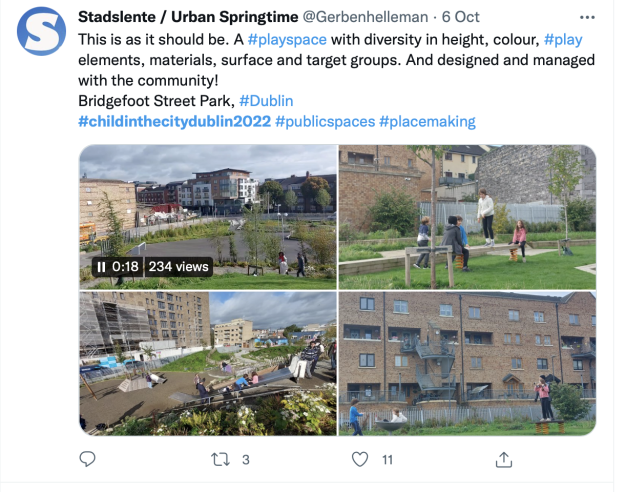
There were also some lovely words from, A Playful City, our host country Ireland’s first non-profit organisation focused on creating more playful, inclusive and engaging urban spaces, with and for communities. They said: “Feeling inspired by the great speakers and projects on show at #childinthecitydublin2022”.
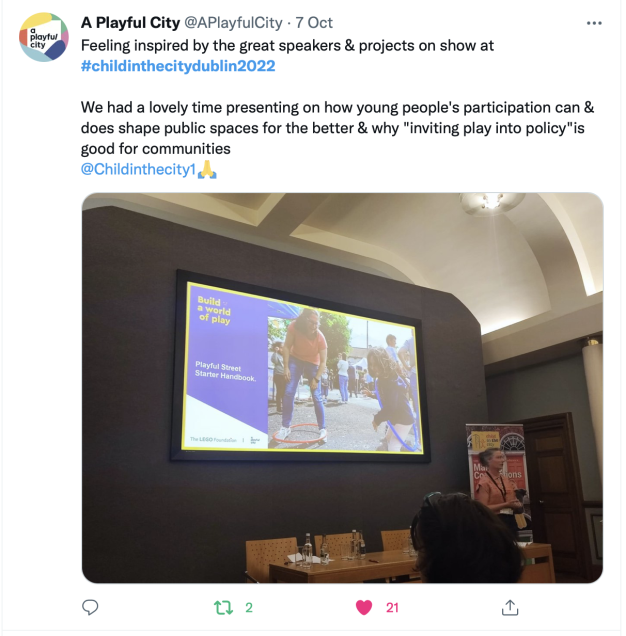
And so, after three days of thought-provoking keynote presentations, and many, many other presentations as part of our ‘parallel’ sessions, it was left to Lia Karsten, president of the Scientific Program Committee of the Child in the City Foundation, to offer some final thoughts to delegates.
On the ‘past and present’ theme, Lia reflected on the key questions posed from a historical context: What can we learn from the past, and how do we pass on the past to the present generation of children and youth?
On the first, she said: “The answer is that is it was not always better. There is a lot of nostalgia when it comes to the past. There is both continuity and change, and change can be positive – for example girls have more freedom of movement today than they used to – but it can also be negative. Take, for instance, the overall decline of outdoor play.
And on the second question, this from Lia: “The past is actually a rich resource for the understanding of the present. Historical learning processes upon up great opportunities for intergenerational encounters with neighbours, shopkeepers and grandparents. In so doing, schools are increasingly located in the heart of the neighbourhood, and children’s everyday environment becomes a rich learning resource.”
‘Children can indicate where we should head to as a society’
Moving onto the topics of participation, health and ‘green’, Lia said that the presentations and discussions had shown these three issues to be very closely interconnected. “Children’s participation in urban planning and playful health indicate both point in one direction – that of green, nature and a sustainable future,” she said.
“Children wish to have more green spaces near their homes and they want unspoiled nature to explore. Children can perfectly indicate where we should head to as a society.”
And on participation: “This is not only about caring for children and trying to listen to them, but also giving them the opportunity to take care of themselves and of our shared future. They are important agents – as was made clear in the presentations – in helping shape processes that help to make this world a better place to live.”
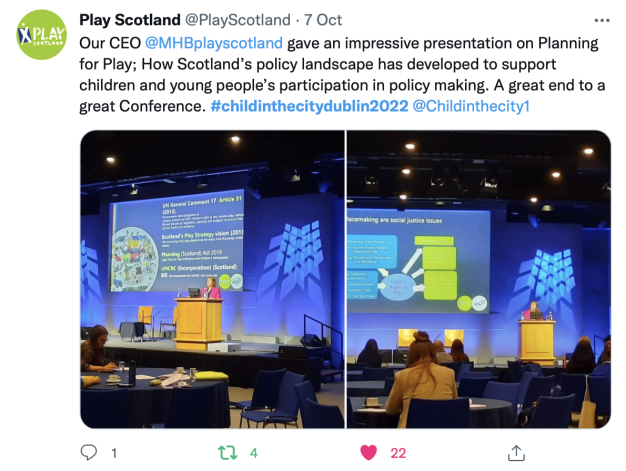
There is, of course, no escaping the issue of COVID – the very reason why this conference has taken place in 2022 and not 2020 – but that just makes it more important than ever before that we learn the lessons of what transpired during this hugely challenging time for everyone.
“We have discussed the impact of COVID on the young generation,” said Lia. “Speakers have shown that COVID has destroyed valuable years of growing up, learning and connecting. All over Europe, we have seen rising figures of children and youths suffering mental and physical problems due to restrictions.
‘We’ve only just started to research the impact of COVID’
“But on the other hand, there are also children and families who, during the pandemic, enjoyed the freedom of being together at home and disconnected from the work-life schedules. They were shocked the moment that everything became normal again.
“We have have only just started to research the impact of COVID, but it may well be that the different impact is very much class and gender related,” she added.
Only time will tell, of course, but there is one lesson that we have all taken from Dublin 2022 which is clear – we can achieve so much by working together.
Finally, Child in the City Dublin 2022 would not have been possible without our hosts, Dublin City Council, and the Irish Department of Children, Equality, Disability, Integration and Youth. A huge thank you to all concerned, and to everyone who came and made it such a success.




